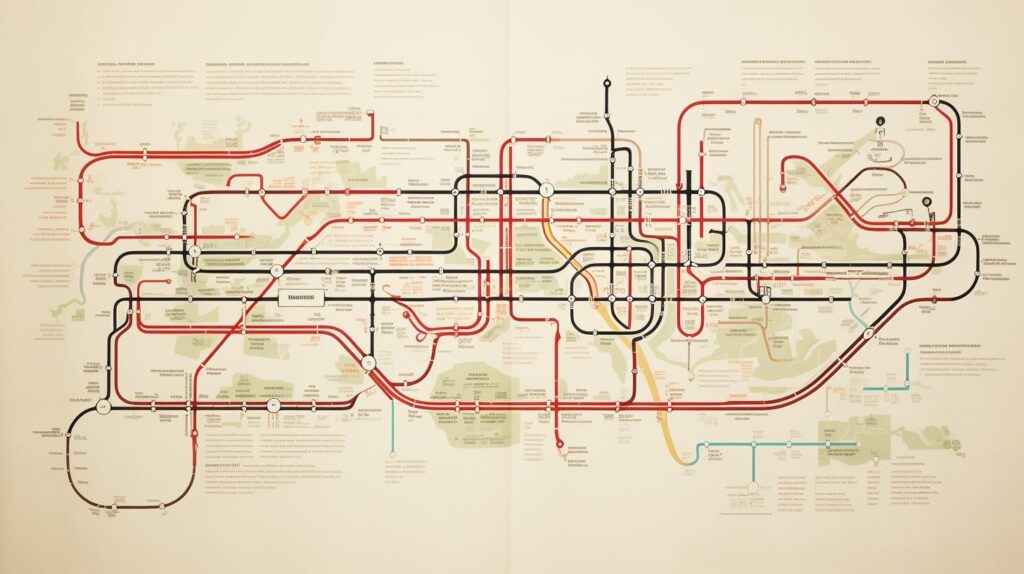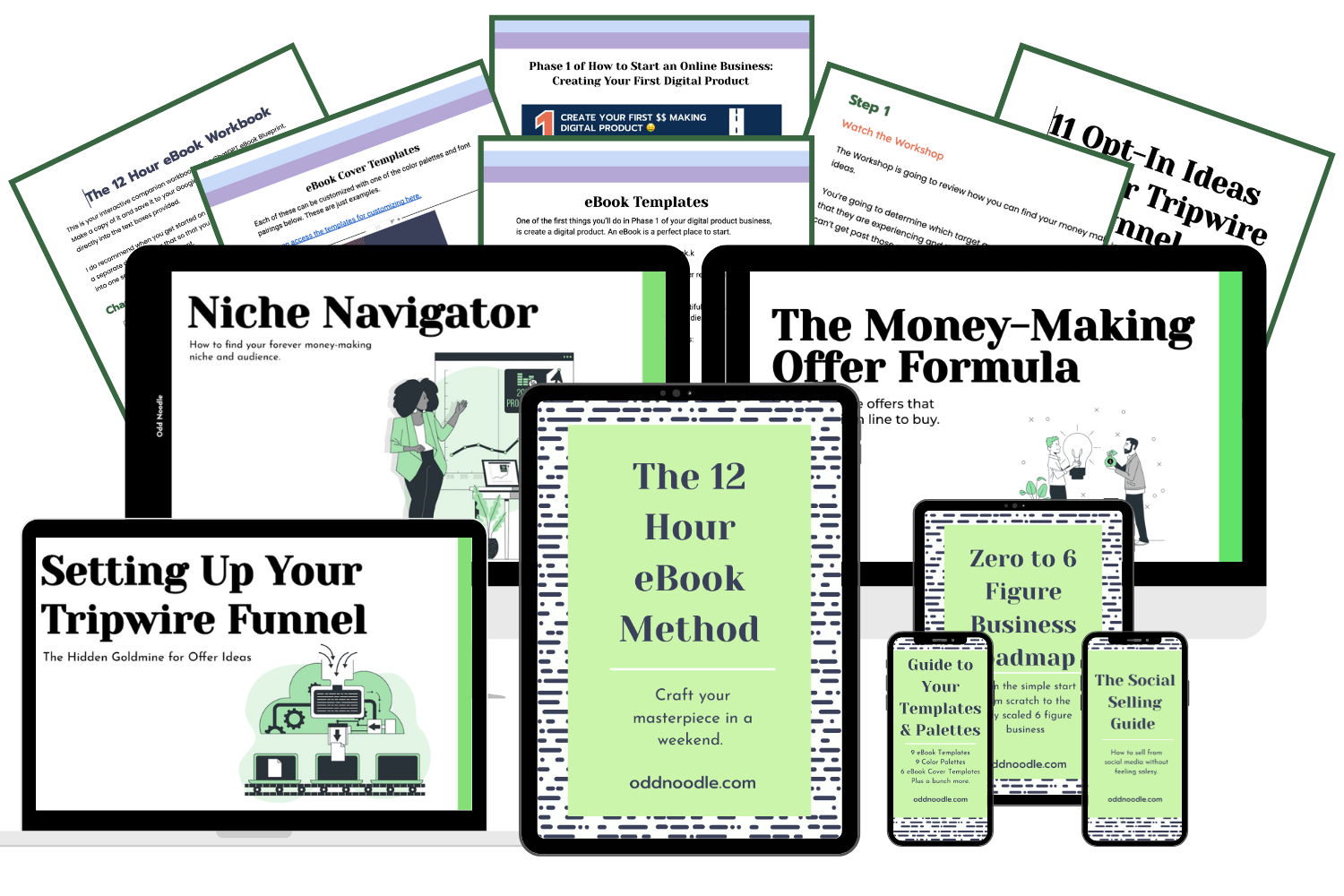First, I need to stand up and applaud you.
Why?
Because you understand that blogging is a business and with any business, you should have some plan of action.
A blog business plan to be more specific because it’s always good to have a plan for your blog or else you’ll be one of those people who is embarrassed to ever talk about it.
Seriously, that’s a major step and already puts you ahead of 99% of the people who dive head-first into this journey.
With that being said, I don’t think you need to do a super official formal business plan crazy when it comes to your blog.
If we are being honest, I’ve never created a business plan in my life but that doesn’t mean I’ve never planned my businesses.
Understanding the direction that you want to go in is an extremely wise thing to do and in this post, I want to show you the things you need to consider when coming up with your blogging business plan.
Your Blog Business Plan
Once you go through some of the aspects of blogging you’ll realize that your business plan doesn’t have to be intricate and although the title of this post is Blog Business Plan it’s important to remember that this is really an online business, not a blog.
Let me say that in a different way.
You’re not starting a blog, you’re starting a business.
If you keep that in mind then you’ll be safe.
So first things first.
What type of blog are you going to create?

3 Types of Blog Businesses
Wait.
Wait.
What?
There are different blog businesses?
Yes.
Think of them as blogging frameworks if you will.
1. The Blog Revenue Engine
The first one is what I refer to as a Blog Revenue Engine and it’s probably the most popular version of a blog business that people think of.
A Blog Revenue Engine is built on how much traffic can you get so that your ad revenue increases.
You spend most of your time writing new content and promoting the hell out of it so you can increase your pageviews.
The more pageviews you get, the more ad revenue you get.
That makes sense, right?
It’s very old school.
Why? Because traffic just doesn’t appear overnight. It takes a lot of time and patience to build up enough traffic to even make $1,000 a month with ads. Sure some bloggers get lucky and can get it quickly, but assume it will take you at least a year.
And that’s okay, but you shouldn’t have to wait for the traffic before you start to make money. We’ll talk about that in a second.
2. Authority Revenue Engine
The second type of blog framework is what you normally see niche Amazon affiliate marketers do and that’s an Authority Revenue Engine.
An Authority Revenue Engine does a great job of focusing on a specific topic.
This is different from a Blog Revenue Engine because with a Blog Revenue Engine it’s in your best interests to pick large and broad topics. In fact, most BREs cover a number of different topics.
You’ll see people refer to these as Lifestyle blogs.
An Authority Revenue Engine however focuses on a more specific topic so that it has a better chance of ranking in Google and generating affiliate marketing revenue.
You can still try to generate ad revenue but the pageviews are generally lower so the ad revenue isn’t as impressive.
If you’re wondering if these two models can be combined then the easy answer is yes.
The problem people have though is picking a niche that works for both frameworks and creating enough content to satisfy both. Learning how to write faster is always a good thing, but if it’s just you working on the blog things are going to take time.
This brings us to the 3rd blog model and it’s not really a blog model but it does include a blog. It’s a much bigger idea for a business.
One that can take you to 5-figures a month and beyond.
I call this the Brand Business
3. The Brand Business
A Brand Business is one that you build that ends up with a Tribe of loyal customers.
A Brand Business isn’t reliant on traffic or worries if the ad money is drying up.
A Brand Business is one that everybody talks about when something specific comes up.
Brand Businesses are not easy to build but they are the best type of businesses to build because they last.
I’m not concerned with getting a ton of traffic to this site so that I can slap ads on it (I never will).
I’m focused on getting the right people here so that I can deliver them the right message and provide them with the right kind of value.
Not everyone is cut out to create this type of business.
I don’t mean that as an insult. The reason I said that I think a BRE is a great first business is because you can see the path to success more clearly and usually you get the results that you want quicker.
That is great for confidence.
That is great for showing your peers.
Once you have that established then you can move on to building a Brand Business.
Odd Noodle is built around the concept of building a brand business that generates over $100,000 a year.
Alright, now that you know the 3 types of blog businesses that you can build it’s time to formulate a plan.

A Blogging Business Plan
I hate to break it to you but I’m not going to give you a fancy worksheet to work through because that is only going to tie you down.
I want you to be flexible when it comes to your new blogging business.
And if I gave you a worksheet what happens if you get stuck somewhere?
Do you move on?
Do you stare at a blank box for months?
You don’t have time for that.
You want to keep momentum moving forward so that’s what we are going to do.
So before you move forward with anything, you’re going to need an idea.
1. The Idea/Niche/Industry/Topic
People call this a lot of different things but since it’s a business I’m going to call it an idea.
What is your business idea?
That sounds a lot different than what niche are you going to blog in doesn’t it?
When it comes to business ideas there is another question that you can ask.
Who are you trying to serve?
I tell all of my students that there is one purpose for your business (besides making money) and that is to serve your audience in the best way possible.
If you can do that then you’re on to something amazing.
When you think of your blog in this way it kind of changes things.
The reason why people who start lifestyle blogs get caught in this limbo of “what should I do?” is because they don’t understand the audience that they are trying to serve.
When you write about everything can you really serve everybody in the best way possible?
Unlikely.
It’s why you usually see them resort to selling blog courses and pimping out web host affiliate links because then they do have an audience they can serve.
Those who also want to start lifestyle blogs because it looks like that’s how they make money.
Now, there is nothing wrong with starting a blog that covers a million different topics and slapping the “Lifestyle” label on it. You can make decent ad revenue with that type of blog (if you work the social media channels hard) but you also tie yourself to that revenue model because you aren’t quite sure who you are serving.
If you want to give your blog the most flexibility with regards to revenue models then it’s best to understand the audience that you’re going to serve.
That way you know the exact content to write, which affiliate products to promote, and possibly which products to create yourself down the road.
With all of that in mind, the big question can be how narrow do you make your audience?
Is your blog about dogs or is it more specifically about German Shepherds?
Is your blog about crafts or is it about crocheting?
Don’t fret about this stuff because I’m going to help you out right now.
The general rule is that the more specific your audience, the easier it is to build a tribe. However, remember the 3 different blog businesses above?
They have different requirements.
If you’re building a Blog Revenue Engine then it makes perfect sense to go broad because you’re solely relying on generating a ton of page views for your ad revenue.
However, with an Authority Revenue Engine or a Brand Business, you’re more focused on getting the right audience because your content and revenue streams are built for that.
So what do you do?
My suggestion is that no matter what business model you decide to go with, you start with a single topic that has a specific audience.
That means if you decide to start a travel blog, which is a broad topic, you narrow it down to maybe frugal traveling.
Here’s the twist.
You can expand your audience in the future. I’m not saying if you want to write about all travel things that you only stick with frugal traveling.
I’m saying build up a reservoir of content around frugal traveling and then expand.
Why do you want to do this?
Because it gives you an opportunity to link all of your content together in a relevant way. It also shows Google and Pinterest the topic that your site is focused on.
No worries, Pinterest and Google won’t lock you into frugal travel if you expand to cruises, road trips, etc.
It also helps you focus on an audience so if you wish to build a mailing list it’s easier to come up with an opt-in. If you want to go wild and make a product then you don’t have to worry about half of your list caring about something else.
Make sense?
Good.
Picking the Idea
There are some basic rules to follow depending on which business model you wish to pursue.
- If you want to create a BRE then you should look for broad and popular niches. You also want niches that do well on Pinterest since that will be your traffic generator in the early stages and allow you to ramp up traffic quickly (if you’re doing it right).
- If you want to create an ARE then you’re looking for niches that are more specific and can fill the gaps that the big sites leave. It’s also helpful if there are good affiliate products that you can sell.
- If you want a Brand Business then there are a TON of different factors that go into play when trying to choose an idea and unfortunately, I don’t have the space to cover all of this since it’s a whole course.
Now that you have the idea, what comes next?
Well, you can’t have a business without marketing so it’s time to jump into that.

2. The Content Plan
You probably got nervous when I mentioned “marketing” didn’t you?
Don’t lie!
It doesn’t matter which business you decide to pursue, content is going to be one of the, if not only, marketing mechanisms for you.
Why?
Because creating content is free with the exception of having to spend time on it.
Creating content and giving it away for free also does something else that is pretty valuable and that is help to build your authority.
When you have content you have something to attract your audience. If your audience likes your content and sees value in it, then they will look at you as a trusted source on whatever topic you’re talking about.
When that happens it opens the doors for many more opportunities.
- More pageviews since people want to explore your site
- Easier to make affiliate sales because people trust you
- Easier to get them to sign up for your mailing list where you can sell your own products
Creating content might be the most important aspect of building your blog business.
It can also be the most frustrating, but you’ll be fine as long as you’re picking the right content to create for your ideal readers.
A general rule of thumb that applies to any type of blog business is to only focus on creating the content that your audience is looking for.
Most people just write the content that they want and then act confused when nobody else cares about it.
If you follow the rule above you’ll be fine.
You have an idea. You have the content. Now what?
Promotion.

3. The Promotion
Your business needs money to survive.
To get money you need an audience.
To get an audience you need to promote your content.
That means you need to figure out how you’re going to promote your content.
This can be a major hiccup for people for a number of reasons:
- They waste time promoting content in places with little to no return
- They don’t spend enough time promoting in the places they should
- Their promotion isn’t doing a good job of promoting value
Instagram is awesome.
I love Instagram.
However, Instagram isn’t going to give you that immediate return on traffic like you want.
I think Instagram is great for brand building but it’s absolutely terrible for traffic building.
The same goes for Twitter and Facebook.
It’s why most of my promotion (depending on niche) starts with Pinterest.
Pinterest provides the fastest return when it comes to building traffic. It’s not as great as it used to be, but Pinterest traffic is still a thing.
Again, totally dependent on niche so don’t blame me when your niche Siberian book club site isn’t going anywhere.
You’ll also want to understand the basics of SEO from the beginning so you don’t have to go back and scramble to fix things.
Do you need to master SEO at the beginning?
Not at all. That can be pretty overwhelming.
However, if you can get the barebones down, then you’ll set yourself up well in the future.
For any new site, it’s going to take a couple of months before Google even considers adding your site to its index. Google needs time to trust you.
You could consider writing guest posts to lower this time, but those are becoming more and more a waste of time if SEO is the goal. They work great to build your authority though.
Pinterest just wants to show people your pins.
Alright, everything is looking good so far.
- Idea? Check.
- Content? Check.
- Promotion? Check.
Just one final thing.
Money.

4. The Revenue Model or Monetization Strategies
If I wasn’t summing up a business model in a blog post then I would probably put this one right up after the Idea phase because there is nothing worse than spending months working on something and then wondering how are you going to make money with it.
A big downfall for a lot of bloggers is that they always default to thinking they’ll rely on ads to make money with their blogs.
While ads can bring in a couple thousand dollars a month that only happens when you are doing over 100,000 pageviews a month.
If you’re creating content around a topic that isn’t that popular that is going to be hard to do.
And let me tell you, nothing is more discouraging than busting your ass creating content only to pull in $47 a month.
Don’t give me that shit about “hey at least it’s some money” because I’d rather get $0 and know I’m screwing up than get $47 and think there is still potential.
With a blog, you have a number of different revenue streams at your disposal but that doesn’t mean you can use all of them.
- ads
- affiliate marketing
- services
- products
- membership site
And there are plenty more. I don’t have ads on this site because I want people focused on the content and my courses.
I don’t offer services because I don’t have time in my day to fulfill them.
When it comes to income streams you have to think if it works for your target audience and if it will work for you.
Just because it is a way to make money doesn’t mean it should be the thing you automatically go to.

It Doesn’t Have to Take Months to Monetize Your Blog
The sooner you can create your book and get it out, the sooner you have a chance of making money with every single person who visits your blog.
The 12-Hour eBook Method was designed to help you get a book onto your blog in the shortest time possible so you don’t need to wait until you hit 100,000 pageviews before you can start making money.
Your Blog, Your Rules
At the end of the day, this is your blog so you make the rules. What I’ve provided you above are just the basic guidelines that I follow when creating a new business.
And while you might want to write a business plan you can see that it isn’t necessarily needed. Instead, take action and figure out the people that you want to reach and help.
It’s just important to keep in mind that all successful blogs, like all successful businesses, do follow a plan. The plan might not be apparent immediately, but they certainly aren’t winging it every single day.
There are a lot more details to dive into.
